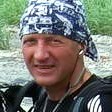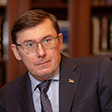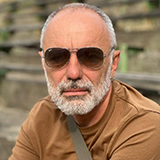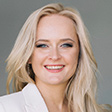Прага 2002-Ялта 2012
У 2002 році Леоніду Кучмі порадили не брати участі у празькому саміті НАТО, але він проігнорував пораду і поїхав. НАТО змінив мову, що використовується для виділення місць лідерам країн за столом саміту. Вирішили використати французьку, а не англійську абетку і тим самим забезпечили, що Кучма не сидів поруч з британським і американським лідерами.
У 2012 році скасування саміту Центральної Європи у Ялті, після того, як 13 з 20 запрошених лідерів бойкотували його, – це є найбільшим дипломатичним провалом з часів провалу Кучми в 2002 році на саміті НАТО. Ймовірним з боку європейських лідерів виглядає і аналогічний бойкот Євро-2012.
Міжнародне становище України є найслабкішим за весь час незалежності з 1991 року. Кучмі знадобилося 8 років, щоб досягти міжнародної ізоляції, в той час як Янукович досяг цього протягом двох років.
Міжнародна ізоляція країни буде збільшуватися і далі, якщо жовтневі вибори не будуть визнані демократичними з боку ОБСЄ. Звичайно ж, вони не можуть бути визнані демократичними, якщо лідери опозиції залишаться в тюрми.
Тепер м'яч на половині Януковича.
Ukraine postpones summit after 13 EU countries withdraw in protest
Kiev postpones Friday's meeting as European leaders pull out over treatment of jailed opposition leader Yulia Tymoshenko
Luke Harding and agencies in Kyiv
The Guardian, 8 May 2012
http://www.guardian.co.uk/world/2012/may/08/ukraine-postpones-summit-eu-countries
Ukraine postponed a meeting of regional leaders due to take place on Friday following pan-European protests over Tymoshenko's treatment.
The foreign ministry said it was rescheduling the meeting at Yalta after Germany, the Czech Republic, Italy and 10 other European Union countries pulled out. Ukrainian officials said it was sensible to delay it because EU state leaders could not attend.
The postponement is deeply embarrassing for Ukraine. Tymoshenko, a former prime minister, was jailed for seven years in October in a trial seen by EU diplomats as politically motivated. She had refused food since 20 April after prison guards apparently assaulted her while forcibly dragging her to hospital. She was left with bruises on her arms and stomach.
Speaking on Tuesday, her daughter Eugenia said Tymoshenko had agreed to go to hospital on condition that her German doctor, Lutz Harms, could begin "bringing her out of her hunger strike". She had lost 10kg, her body temperature had dropped and she felt "very faint", Eugenia said. After examining Tymoshenko on Tuesday, Harms had warned that she needed to start "immediate treatment, otherwise she could be disabled", her daughter said.
Tymoshenko's case has been a PR disaster for Ukraine, which is due to host the 2012 European football championship next month with Poland. In a letter released from prison, Tymoshenko on Tuesday urged the international community to boycott her country. "The people of Ukraine cannot fight [the Yanukovych government] on their own," she wrote.
Photographs of Tymoshenko's injuries last week triggered international condemnation, as well as focusing attention on Ukraine's president, Viktor Yanukovych. His critics accuse him of presiding over a rapid rollback of democracy following his narrow victory over Tymoshenko in the 2010 presidential election.
Leaders of several EU countries, led by Germany, have said they will boycott all matches to be played in Ukraine. Last week the German chancellor, Angela Merkel, said neither she nor her cabinet would attend in protest over Tymoshenko's treatment.
Yanukovych, however, has so far said nothing directly about the Euro 2012 boycott. Writing in the journal New Eastern Europe, the Polish journalist Piotr Pogorzelski likened Yanukovych to an "ostrich". He said the authorities were maintaining silence to avoid giving Ukraine's pro-government TV channels a pretext to cover the story.
Pogorzelski said Yanukovych seemed unwilling to listen to his critics. He observed: "After all, who is the president of the European commission, José Manuel Barroso, or some German politicians for the Ukrainian president to worry about? 'They don't want to come? Let them stay home!' – This is what Yanukovych seems to be saying while taking a long walk in the large grounds of his residence."
Tymoshenko is being held in a female prison in the eastern city of Kharkiv, the venue for Germany's first group stage match on 13 June against Holland. She has refused to accept treatment from doctors provided by Ukraine's health ministry, apparently fearing a plot against her.
Germany has offered to treat her but Kiev has refused the request, although it has allowed German doctors to visit her.
Yanukovych's aides have accused Berlin of bullying behaviour and "cold war tactics". Leonid Kozhara, president of the pro-government European Centre for a Modern Ukraine, said the country had been misunderstood. He said Ukraine's prosecutor-general was investigating claims that Tymoshenko had been mistreated, adding that the government was "dedicated to Europe and its values".
Last week the European commission president, José Manuel Barroso, said he would not attend Euro 2012 games in Ukraine; several other EU leaders have followed suit. Downing Street has refused to say whether British ministers will travel to Ukraine, where all three of England's group stage matches will take place.






